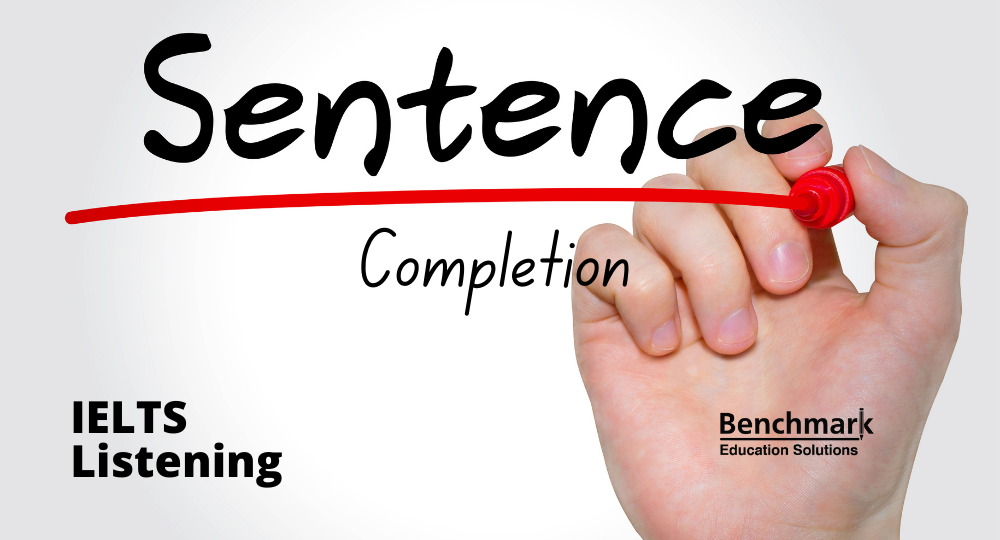IELTS Listening: Sentence Completion Practice Test & Tips
- 0 Comments

Table of Contents
1. Sentence Completion Question Type Explained
With the Sentence Completion question type, you will need to complete unfinished sentences using words from the audio text. Fill in the gap in each sentence using information you hear.
This question type may also involve completing a summary instead of a sentence, though it is quite rare to see a summary completion question. If you get a summary completion, the strategy involved to successfully answer the question will be the same as for simple sentence completion.
2. This is how the question will appear on your question paper

3. Tips Before You Listen
Here are some tips that will help you before you listen to the audio:
- Read the instructions carefully! Don’t write any more words and numbers than what the instructions allow you to write. If you do, your answer will be incorrect, even if you technically have the correct answer.
- You will have time to read the sentences before the recording plays.
- You will need to listen for specific details and key words.
- Mark key words from the sentences, so you can listen for them.
- Think of synonyms for these key words that you might also hear.
- Based on the sentences, predict the topic and possible content of the audio you are about to hear.
- You will need to understand the relationships between the information in the beginning of the sentence and the information needed in the end of the sentence. For example, cause and effect.
- Think about the grammar required to complete the sentence correctly.
4. Tips While you Listen:
Here are tips to consider as you are listening:
- Some sentences will be a summary of the conversation.
- The gaps will be in the same order as the information you hear.
- The information may come from all of the listening text, or one part of it.
- Don’t change the word you hear in the recording. You will hear the EXACT WORD you need to write, even though the words around the answer may be synonyms, or be paraphrased.
- It is allowed and advisable to write your answers in all capital letters. They are easier to read, and you can avoid incorrect capitalization, which would be marked incorrect.
If you have trouble with a question, make an educated guess and move on. You don’t want to lose your place in the audio and risk missing even more questions. Don’t leave any answers blank, even if you have to guess.
5. Ready to try a sample question?
First, read through the sentences quickly, paying special attention to the words before each gap. Then, click play and listen to the audio to find the answers. During the actual exam, you will only be able to hear the audio once, so try to answer the questions as you listen one time. Of course, since you are practicing, you may listen to the audio multiple times to become more familiar with the question type and how to answer it.
Ready? Here are the questions.
Questions 9-10
Write NO MORE THAN THREE WORDS to complete each space.
Now, listen to the audio and answer the question.

